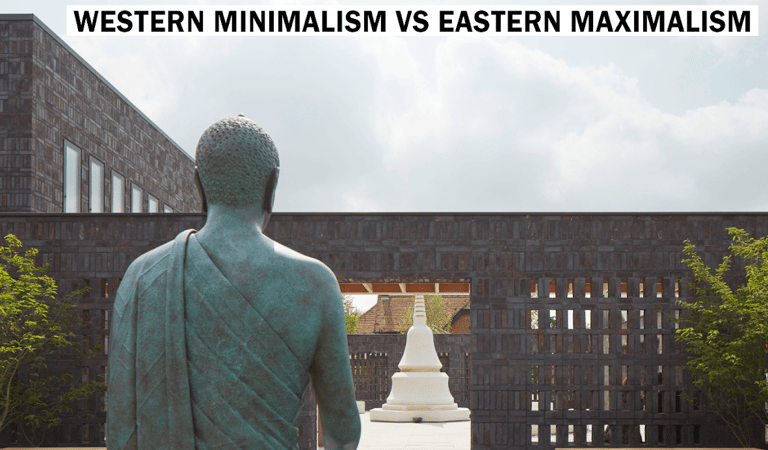WESTERN MINIMALISM VS EASTERN MAXIMALISM


The first time I encountered the concept of a minimalist lifestyle was through Joshua Becker's article, which sparked my interest in examining the contrast between the Western culture it represents and the simplicity reminiscent of ancient Eastern lifestyles.
As this minimalist movement gains rapid popularity worldwide, particularly among Westerners, its prevalence in internet trends and bookstore offerings is unmistakable. Simultaneously, during my observations of life and development in Southeast Asia and parts of the Middle East, I noticed a stark contrast as Eastern cultures tend to embrace a maximalist way of life.
This paradox serves as a compelling testament to the cross-cultural exchange occurring between the West and the East. Western societies, often characterized by consumeristic tendencies, are increasingly drawn to the simplicity advocated by traditional Eastern cultures. Conversely, Eastern nations, while maintaining their rich historical traditions, are expressing growing interest in adopting elements of typical modern Western culture.
Exploring the ancient lifestyles and traditions of Eastern lands reveals the inherent simplicity found in Buddhist, Hindu, and Islamic cultures, influencing the daily lives of the people. This stark dichotomy between the minimalist tendencies of the West and the maximalist inclinations of the East highlights the dynamic interplay between cultural influences and the ongoing exchange of ideas across continents.
In essence, this cultural paradox underscores the evolving nature of global societies, where the lines between Western minimalism and Eastern maximalism are increasingly blurred, giving rise to a fascinating fusion of traditions and contemporary values.
